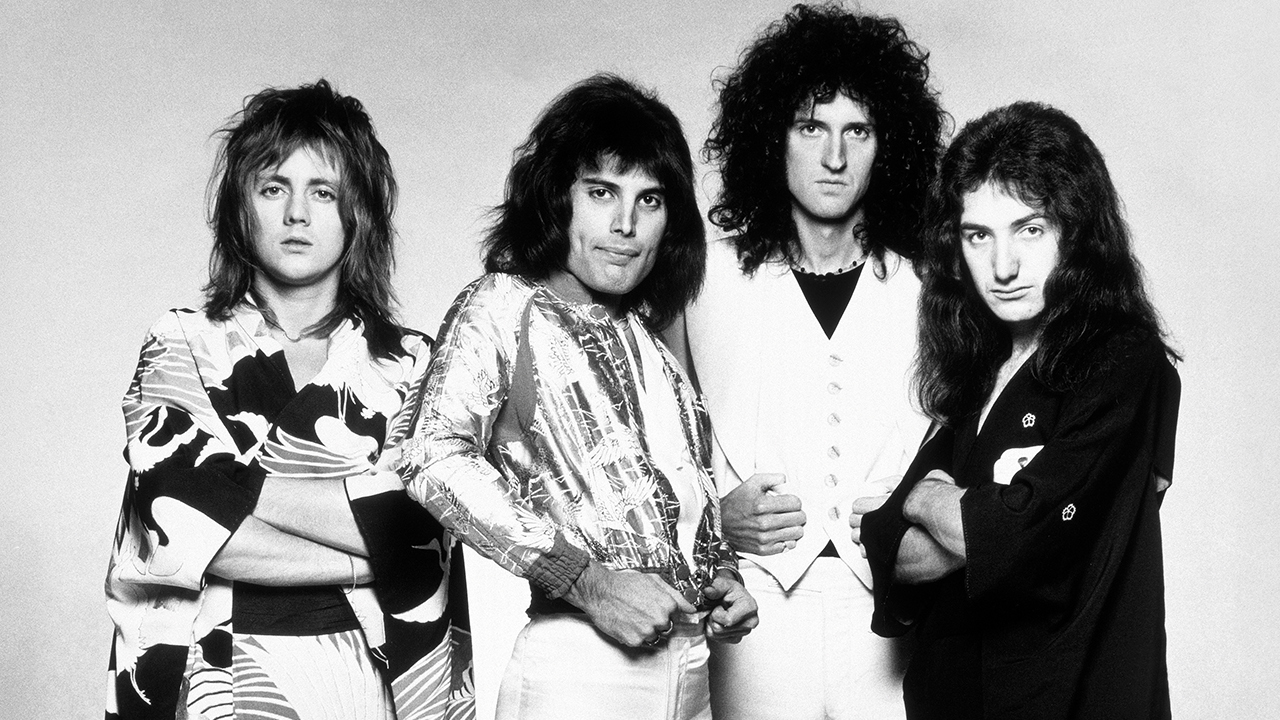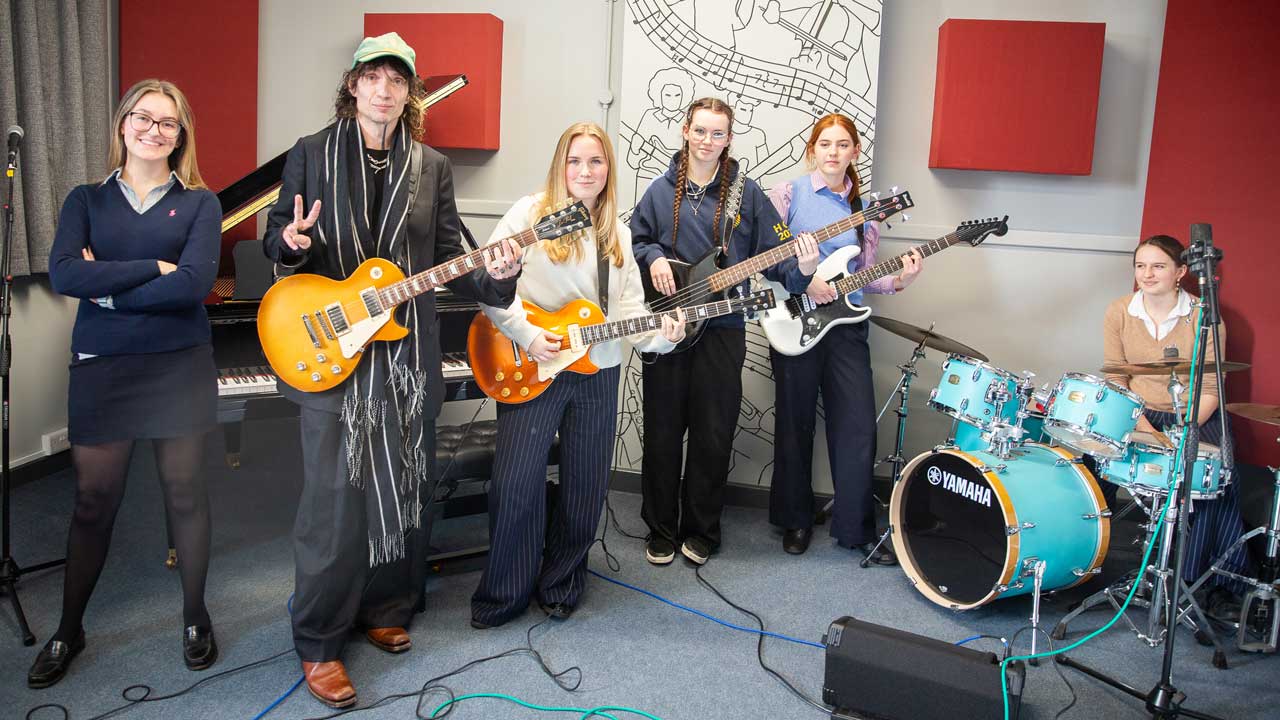You can trust Louder
“How did you manage to get such a loud noise on one record?” the late Capital Radio DJ, and renowned Queen fan, Kenny Everett asks Freddie Mercury in an interview in 1976 to promote Queen’s fifth album A Day At The Races, the interview one of many extras on this multi-disc extravaganza. “You do get a lot of sound on a little LP,” adds Everett, pleasantly bemused.
On Air is full of such moments of real-time amazement, as broadcasters get their first exposure to Queen’s music. Even John Peel – the band’s earliest champion of note – can’t conceal his delight at this strange new convergence of proto-metal and quasi-operatic fervour, notwithstanding his usual droll detachment as he back-announces the tumultuous gallop of Keep Yourself Alive during a BBC session. “And that was written by Brian May, who contributed some nice noises to the track.”
No amount of deadpanning could disguise from listeners that dropped-jaw reaction at hearing Queen, six months ahead of the July 1973 release of their self-titled debut album, performing My Fairy, Keep Yourself Alive, Doing All Right and Liar on Peel’s show. You can experience the surprise for yourself with this package, although to what extent will depend on which format of On Air you buy.
There’s the basic two-CD or three-LP set comprising the 24 tracks they recorded in six radio sessions for Peel and Bob Harris’s BBC shows between February 1973 and October 1977. It’s also available as a deluxe six-disc edition featuring an additional CD of live broadcasts and three CDs of radio interviews. Those three concert recordings are from the Golders Green Hippodrome in September ’73, the Estádio Do Morumbi, São Paulo, Brazil, in March ’81, and Maimmarktgelände, Mannheim, Germany, in June ’86.
Bookending their live career, they are a hoot, not just for the delicate sound of thunder emanating from the stage but also for the period scene-setting. The first is a before-they-were-famous affair, introduced by a chap whose pronunciation makes him sound as though he’s sporting a Terry Thomas ’tache. By the second show Queen are already the biggest band on earth (give or take The Police), playing to a record-breaking São Paulo crowd of 131,000. The third and final performance is Queen’s penultimate live radio broadcast, aired in Germany less than four weeks before their final show with Mercury.
Those three CDs of radio interviews – 17 in total, lasting 220 minutes – are by turns daft and revealing, the plummy tones of some presenters evoking the dour, staid times in which Queen emerged with their theatrical brand of colourful, camp hard rock. There’s Mercury being coerced by Everett into doing the weather forecast. Roger Taylor grumbles to Radio 1’s Tom Browne about the parlous nature of Queen’s relationship with the press – hard to believe today, when Queen are about as loved as any band, but back then their “techno-flash rock” (Taylor’s phrase) and Mercury’s peacock preening made them music-press pariahs (‘Is This Man A Prat?’ was a typical NME headline). Towards the end of Mercury’s life there’s an encounter with Simon Bates in which the fame-weary star says: “There are days when I wake up and wish I wasn’t Freddie Mercury.”
The music was enough to enliven the dead. The first session evinces a band keen to incorporate some of the structural advances of prog, Mercury establishing himself as a powerful singer to match Robert Plant even if he was a strutting narcissus almost of a different species. Even without producer Roy Thomas Baker’s studio bombast, Queen make an impressive racket. The second session, from July ’73, features See What A Fool I’ve Been (perhaps closer to Led Zep’s blues rock than we might remember), Keep Yourself Alive, Liar and Son And Daughter which essays a new paradigm: choral raunch’n’roll. By their fourth trip to the Beeb, in December ’73, they had already begun work on their second album, Queen II, released the following March. Here the band premiere a new song from that album, Ogre Battle, alongside three from the debut, including the Taylor-sung Modern Times Rock’n’Roll.
Sign up below to get the latest from Classic Rock, plus exclusive special offers, direct to your inbox!
With their penultimate session, in October ’74, a month before the release of third album Sheer Heart Attack, Queen continued using the BBC to road-test new material: the explosive Now I’m Here, the hard-rock hurtle of Stone Cold Crazy, Flick Of The Wrist – all staccato attack and stacked, multitracked harmonies – and Tenement Funster, another Taylor vocal.
But it’s on their final, October ’77 session – following a three-year layoff during which, in the wake of Bohemian Rhapsody, they had become a global attraction – that they took the opportunity to veer off-piste. Peel – still a fan even at this, the height of punk – warns us to expect “in some cases, radically different versions” to the ones on the then-imminent News Of The World. So be prepared for two quite different renditions of We Will Rock You: a brief take on the monstrous terrace chant stomp that we know and love, with a female voice-over at the end intoning balefully about Buddha and Brahma; and a faster one that is sheer heads-down, no-nonsense, gloriously mindless stadium boogie. You can almost hear Kenny Everett wondering: “How did they do that?”
Paul Lester is the editor of Record Collector. He began freelancing for Melody Maker in the late 80s, and was later made Features Editor. He was a member of the team that launched Uncut Magazine, where he became Deputy Editor. In 2006 he went freelance again and has written for The Guardian, The Times, the Sunday Times, the Telegraph, Classic Rock, Q and the Jewish Chronicle. He has also written books on Oasis, Blur, Pulp, Bjork, The Verve, Gang Of Four, Wire, Lady Gaga, Robbie Williams, the Spice Girls, and Pink.


